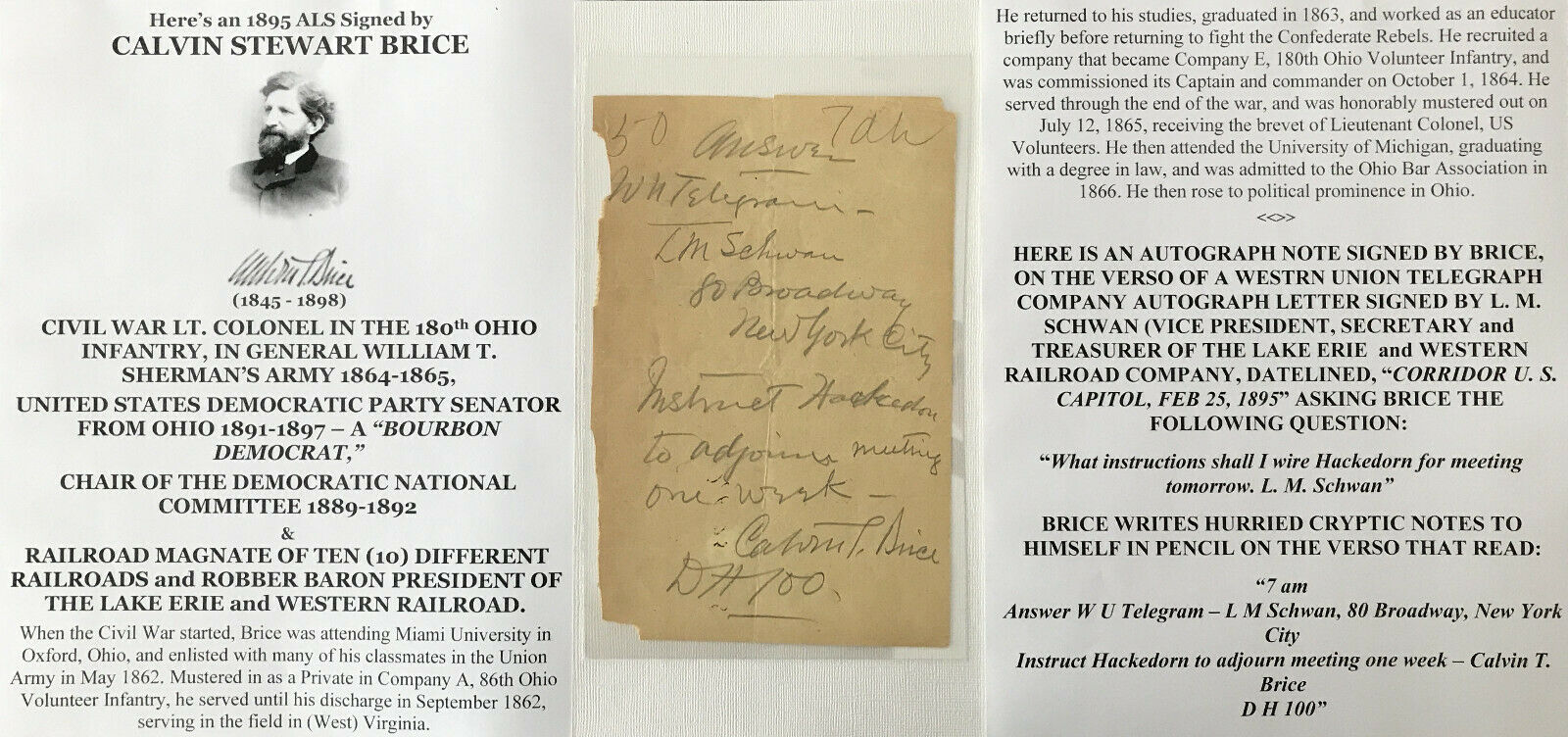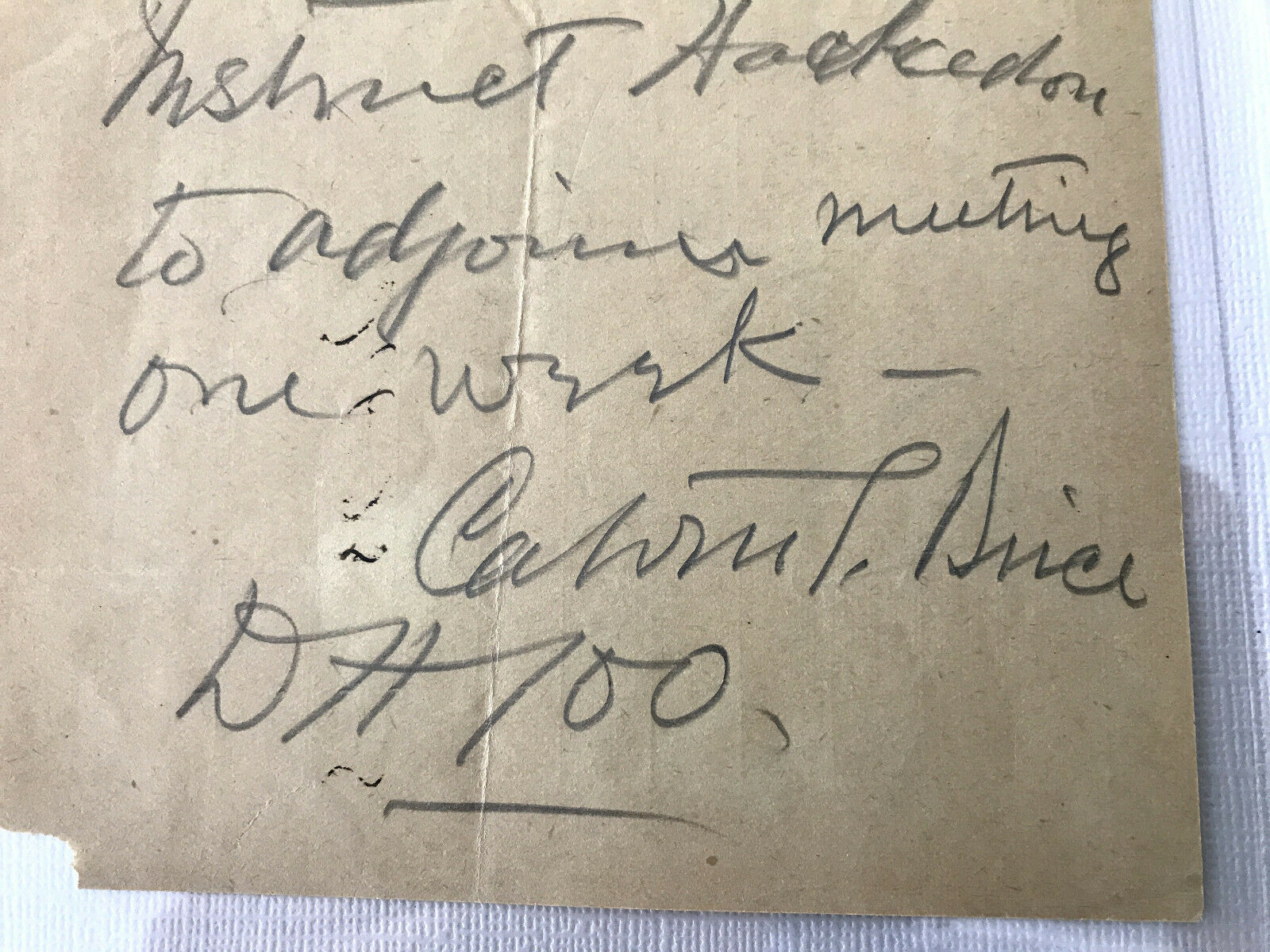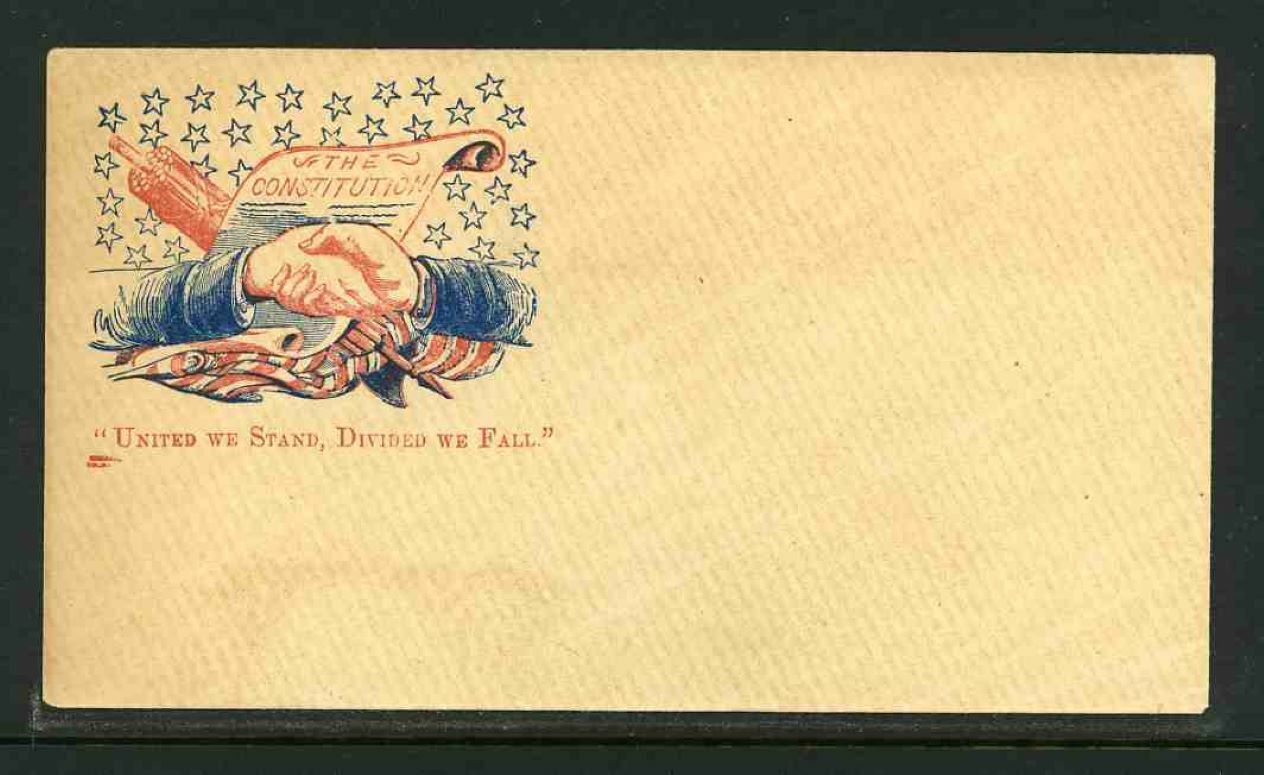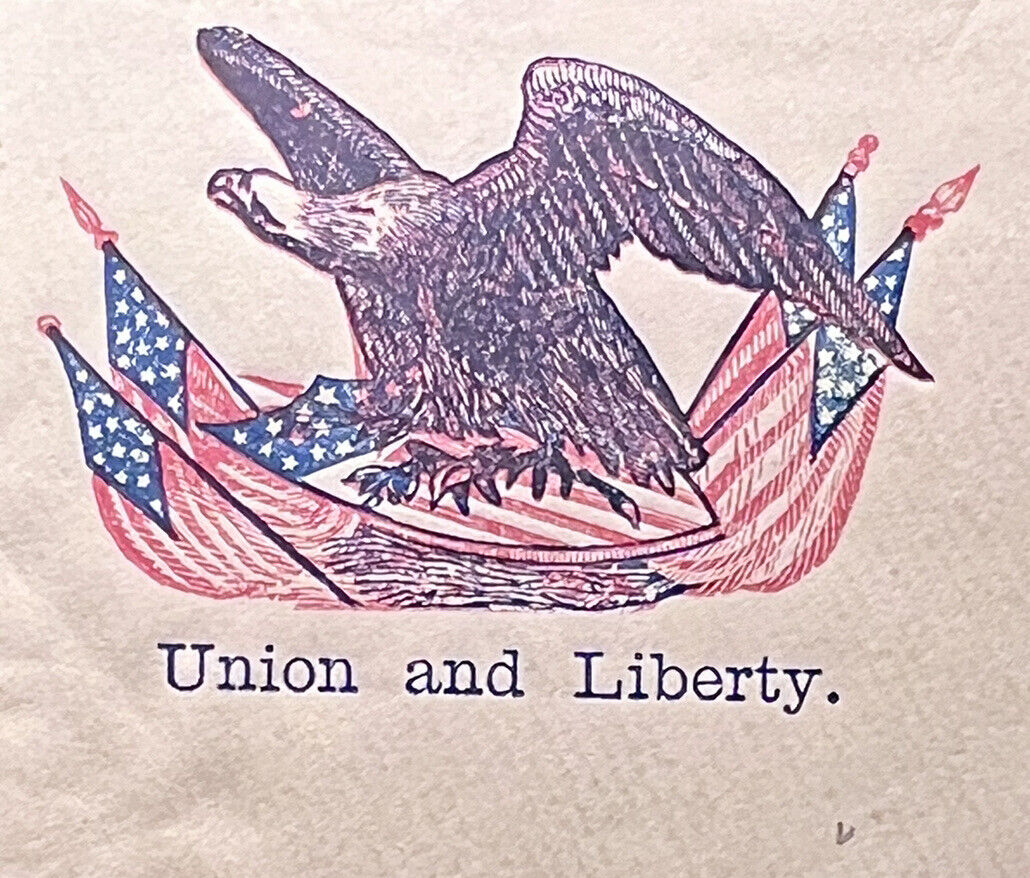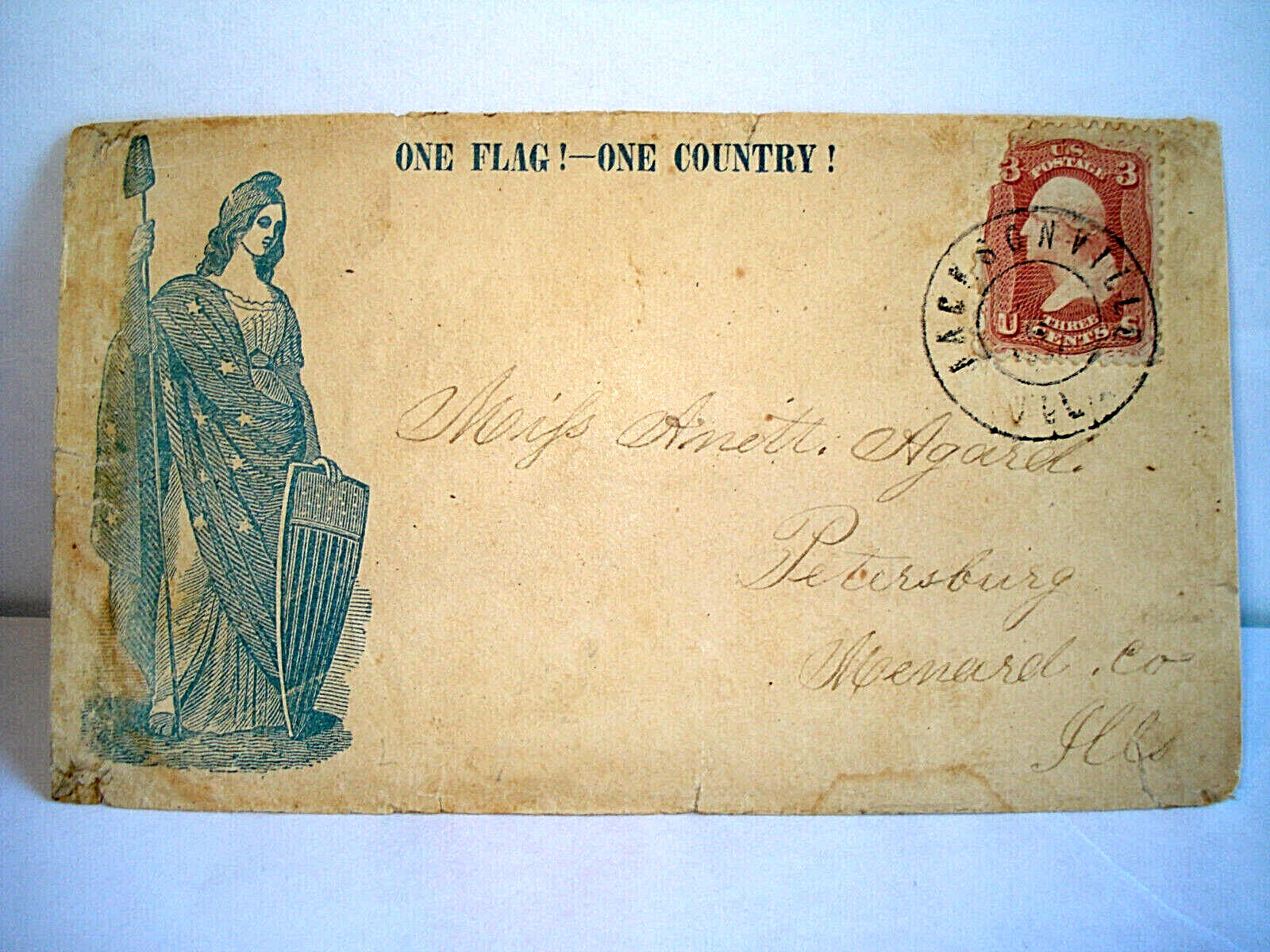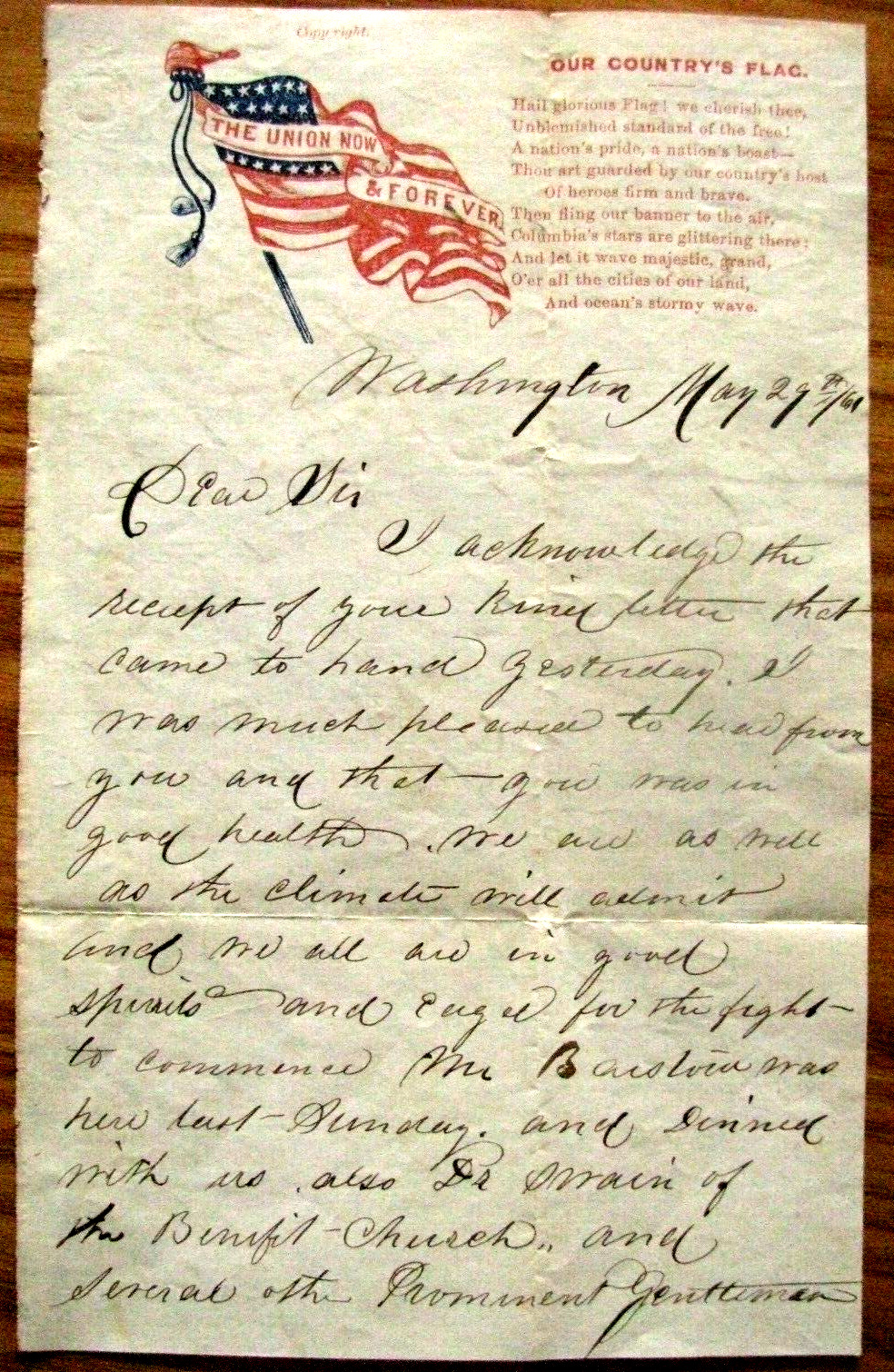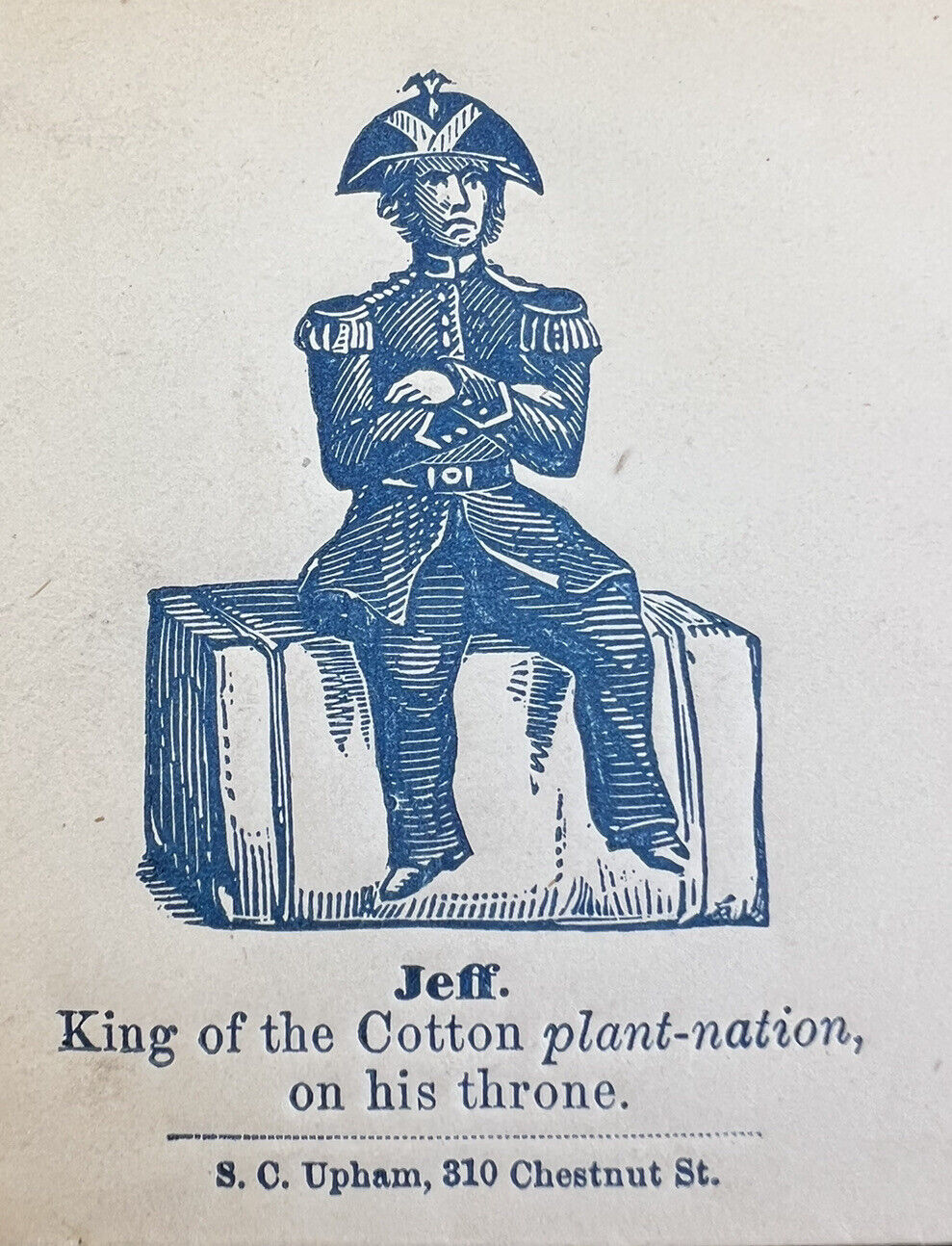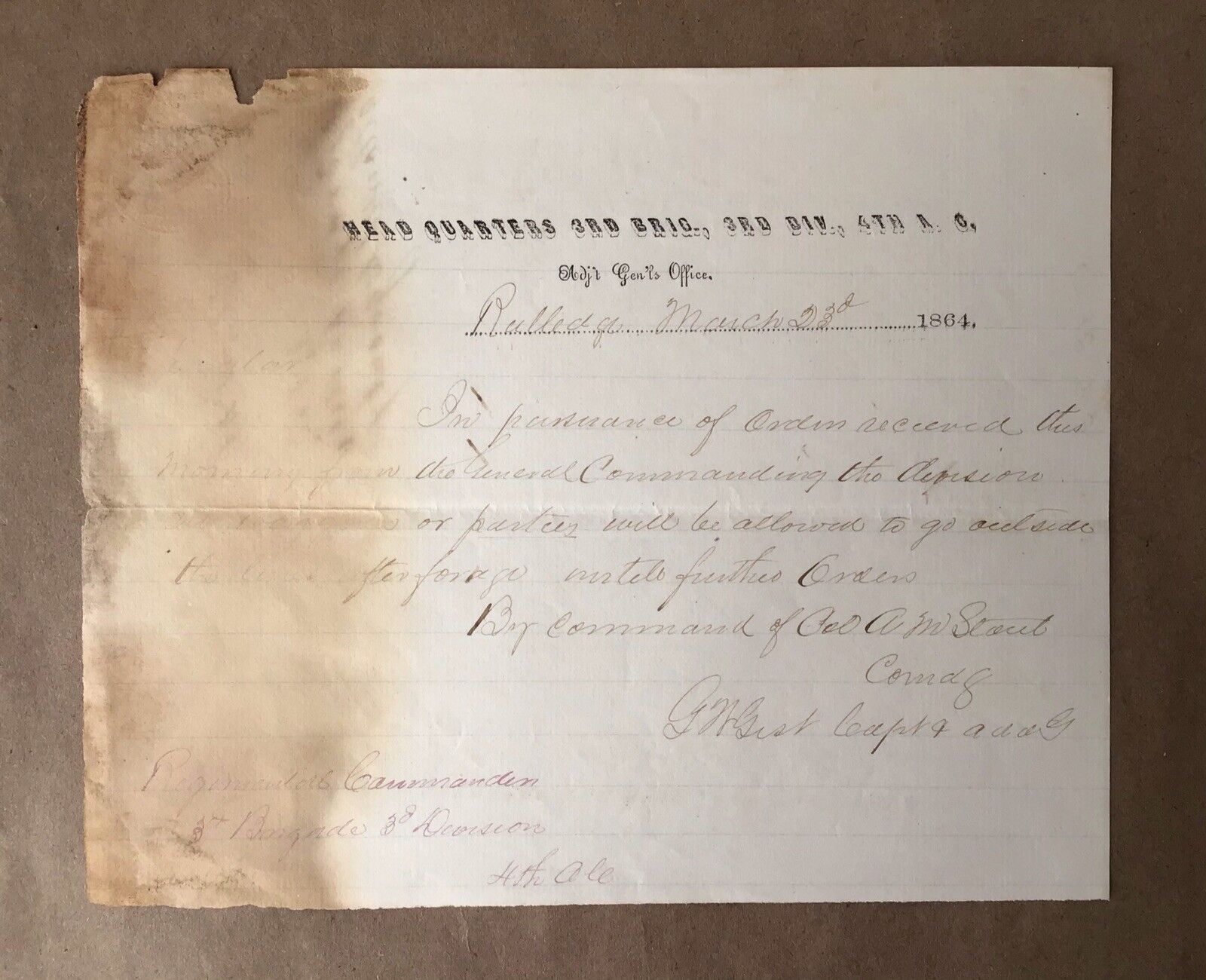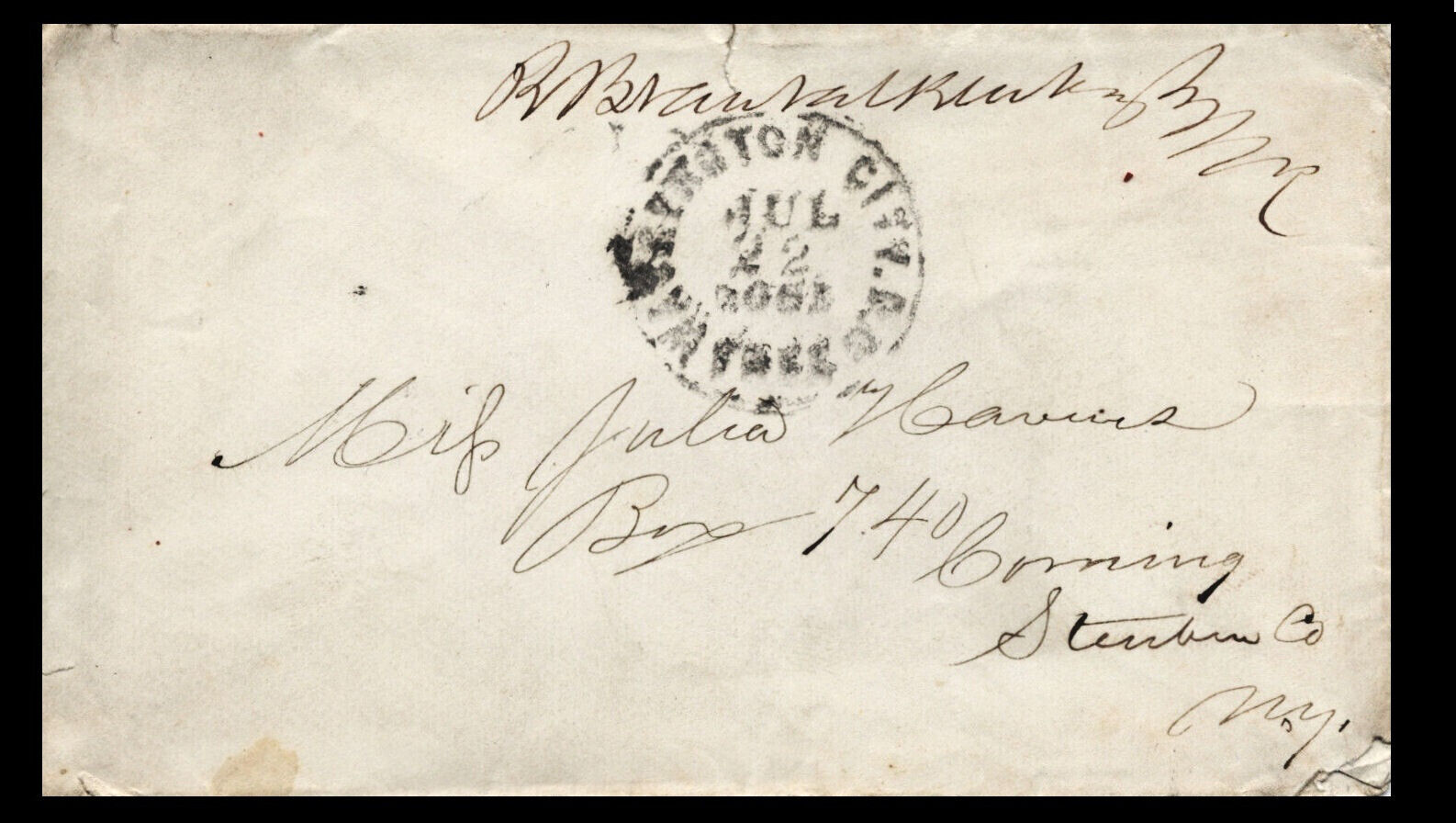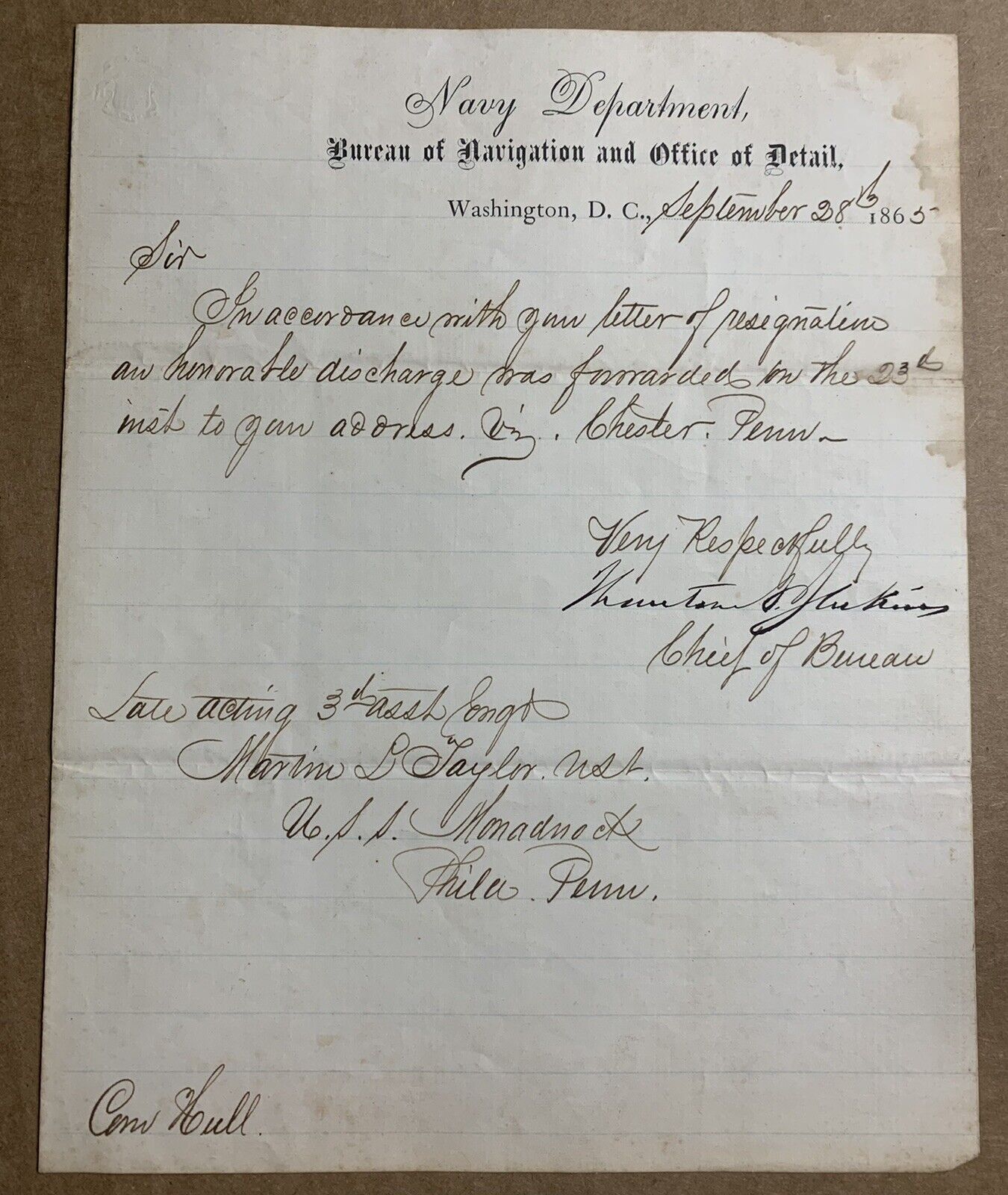-40%
CIVIL WAR COLONEL 180th OH INFANTRY SENATOR RAILROAD MAGNATE BRICE LETTER SIGNED
$ 5.27
- Description
- Size Guide
Description
Here’s an 1895 Document Signed byCALVIN STEWART BRICE
(1845 - 1898)
CIVIL WAR LT. COLONEL IN THE 180
th
OHIO INFANTRY, IN GENERAL WILLIAM T. SHERMAN’S ARMY 1864-1865,
UNITED STATES DEMOCRATIC PARTY SENATOR FROM OHIO 1891-1897 – A
“BOURBON DEMOCRAT,”
CHAIR OF THE DEMOCRATIC NATIONAL COMMITTEE 1889-1892
&
RAILROAD MAGNATE OF TEN (10) DIFFERENT RAILROADS and ROBBER BARON PRESIDENT OF THE LAKE ERIE and WESTERN RAILROAD.
When the Civil War started, Brice was attending Miami University in Oxford, Ohio, and enlisted with many of his classmates in the Union Army in May 1862. Mustered in as a Private in Company A, 86th Ohio Volunteer Infantry, he served until his discharge in September 1862, serving in the field in (West) Virginia.
He returned to his studies, graduated in 1863, and worked as an educator briefly before returning to fight the Confederate Rebels. He recruited a company that became Company E, 180th Ohio Volunteer Infantry, and was commissioned its Captain and commander on October 1, 1864. He served through the end of the war, and was honorably mustered out on July 12, 1865, receiving the brevet of Lieutenant Colonel, US Volunteers. He then attended the University of Michigan, graduating with a degree in law, and was admitted to the Ohio Bar Association in 1866. He then rose to political prominence in Ohio.
<
<>
>
HERE IS AN AUTOGRAPH NOTE SIGNED BY BRICE, ON THE VERSO OF A WESTRN UNION TELEGRAPH COMPANY AUTOGRAPH LETTER SIGNED BY L. M. SCHWAN (VICE PRESIDENT, SECRETARY and TREASURER OF THE LAKE ERIE
and WESTERN RAILROAD COMPANY, DATELINED, “
CORRIDOR U. S. CAPITOL, FEB 25, 1895
” ASKING BRICE THE FOLLOWING QUESTION:
“
What instructions shall I wire Hackedorn for meeting tomorrow. L. M. Schwan”
BRICE WRITES HURRIED CRYPTIC NOTES TO HIMSELF IN PENCIL ON THE VERSO THAT READ:
“7 am
Answer W U Telegram – L M Schwan, 80 Broadway, New York City
Instruct Hackedorn to adjourn meeting one week – Calvin T. Brice
D H 100”
THE DOCUMENT MEASURES 5¼” x 8” & IS IN VERY GOOD CONDITION, with some marginal paper chips, not affecting any text.
A RARE ADDITION TO YOUR 19
th
CENTURY/CIVIL WAR MILITARY and POLITICAL HISTORY AUTOGRAPH, MANUSCRIPT & EPHEMERA COLLECTION.
<<
::
>>
BIOGRAPHICAL SKETCH OF THE HONORABLE
CALVIN STEWART BRICE
Calvin Stewart Brice
(September 17, 1845 – December 15, 1898) was a
Democratic
politician
from
Ohio
. Born at
Denmark
in
Morrow County
, Brice
dropped
out of
Miami University
in 1861 to join the
Union Army
. After a short stint in the Army, he returned to Miami University and earned his
undergraduate degree
from there in 1863. After the
Civil War
, Brice studied
law
at the
University of Michigan
and then started a
business
career
where he amassed a
fortune
, largely in
railroads
. In 1879, he became president of the
Lake Erie and Western Railroad
and built the
Nickel Plate Road
in 1882. A Democrat, Brice was the chairman of the
Democratic National Committee
from 1889 until 1892 and won elected to the Senate in 1890, serving a single term in office.
Early life
Calvin Brice was born on September 17, 1845 in the small town of Denmark, Ohio, to Elizabeth Stewart and William Kirkpatrick Brice, a
Presbyterian
minister
of no great wealth. Originally home-schooled, he later entered the Columbus Grove public school system in Putnam County. Showing some promise as a student, Brice began preparations for higher education and in 1859 gained admission to Miami University. After graduating in 1863 with high honors, he would become a devoted alumnus later in life. His efforts in 1885 and 1888 to provide funding for the University were largely responsible for its survival, and a science building, Brice Hall (now demolished) was named in his honor.
Military and early legal career
Brice's first attempt to join the army in 1861 met with little success, after being turned down because of his young age. In the summer of 1862, however, Brice enlisted and served three months in the
86th Regiment of the Ohio Volunteer Infantry
, seeing action in West Virginia. In 1863 he returned to and graduated from Miami University and worked as a schoolmaster, before he joined the army again in 1864, this time serving as captain to a company of volunteers he recruited for the
180th Ohio Infantry
. Brice rose rapidly through the ranks of the Union Army and, by the end of the war, attained the position of Lieutenant-Colonel.
With "no desire for an army career," according to historian Thomas Mach, Brice ended his military career soon after to pursue a career in law. He earned his law degree from the
University of Michigan Law School
, Ann Arbor, in 1865 and passed the Ohio bar in 1866.
Business career
Brice found his break into both the business and political worlds under unusual circumstances. Around 1880, when his law practice was proving unsuccessful and his mother's home was at risk of foreclosure, Brice wrote to the holder of the mortgage, the then governor
Charles Foster
, and offered to attend to any legal interests he needed help with. Foster declined the legal help, but offered instead to pay Brice five hundred dollars to negotiate a business deal on Wall Street on his behalf. Brice accepted, and proved a shrewd businessman; Foster would later name Brice "the most remarkable man [he] ever met […] the most successful borrower [he] ever saw."
[4]
Ignoring Foster's explicit instructions for his work on the business proceedings in New York and instead following his instincts, Brice returned with a shocking profit of ,000, and earned the trust and friendship of the governor.
After working as a private lawyer, Brice joined the
Lake Erie and Louisville Railroad
law department, where he gained his initial experience with the railroad industry, learning how to operate, fund, and expand its lines. Foster became impressed with Brice after he unveiled a plan to save a foundering rail project running from Toledo to Ohio's coal fields. With Foster's support, Brice managed to guide the railroad through the
Panic of 1873
and expand it into Lima and other areas. Brice eventually rose to president of the company in 1887, which by then had become known as the
Lake Erie and Western Railroad
.
Over time, Brice netted a great fortune, laying claim to ten different railroads while spreading into numerous other businesses, including the National Telegraph Company and the Chase National Bank of New York. Perhaps his most marked achievement came with his role in the construction of the Nickel Plate Road in 1882, which ran from New York to St. Louis. He later sold this road for a generous profit to
William Henry Vanderbilt
, who recognized it as a dangerous competitor.
Later in life, Brice became involved with railroad projects in China. He was a founding member of the American Asiatic Association, an organization responsible for pursuing American trade interests in China under the
Open Door Policy
.
In the late 1890s, he began an attempt to build a railroad between
Canton
and
Hankou
on Mainland China. However, he died before the project was completed.
Throughout his business career, two overlying themes appeared dominant - Brice's ability to take a failing or fledgling business and restructure it to make profit, and his involvement with Charles Foster, whose support was crucial to Brice's success. The mining town of
Briceville, Tennessee
, which he proved instrumental in helping to connect to railroad service, is named for him. At the same time, however, Brice remained selfless in his aims and frugal in his desires, unlike most of the so-called
robber barons
of his day. According to historian James White, Brice did not accept much compensation for his services during a business transaction and often held himself accountable to the public by "stripping a proposition of every incumbrance and laying it bare for inspection."
Political career
In addition to his business career, Brice played an ongoing role in state and national politics. A
Bourbon Democrat
, he was an electoral candidate for
Samuel J. Tilden
in 1876 and later worked for the 1884 presidential campaign of
Grover Cleveland
. As time passed, Brice became more active in the Democratic Party and was elected as a delegate-at-large to the 1888 Democratic National Convention in St. Louis. In 1889, Brice was chosen to replace the late
William H. Barnum
as Chairman of the Democratic National Committee, until he was replaced in that position by William Harrity of Pennsylvania in 1892, after expressing doubts about renominating Grover Cleveland at that year's convention. Yet, his wealth and connections made him an influential party chairman, earning him the nickname "Calvin $ellars Brice."
In 1890 Brice won nomination as his party's candidate to succeed George H. Payne, the outgoing U.S. Senator from Ohio. Heavy campaign spending secured the election of a Democratic majority to the
Ohio General Assembly
, enabling Brice's selection. Because of suspicious circumstances deriving from Payne's initial selection, though, Brice was scrutinized by the Senate before assuming office. Although Brice enacted few memorable measures as Senator, he gained a reputation as one of the most hard-working and intelligent members of Congress, serving on the Democratic Steering Committee, Committee on Appropriations, and as Chairman of the Committee on Pacific Railroads. Brice's reversal on the critical issue of
tariff reform
, however, cost him the support of many in his Democratic base. Also, Brice's strong ties to New York businesses led some in Ohio to call him "New York's Third Senator." Though Brice fended off a censure motion at the 1894 Democratic party state convention, he lost his bid for reelection to Republican
Joseph B. Foraker
three years later.
After his defeat, Brice dropped out of Ohio politics.
He died suddenly and unexpectedly in
New York City
of an acute attack of pneumonia in 1898.
<
<>
>
I am a proud member of the Universal Autograph Collectors Club (UACC), The Ephemera Society of America, the Manuscript Society & the American Political Items Collectors (APIC) (member name: John Lissandrello). I subscribe to each organizations' code of ethics and authenticity is guaranteed. ~Providing quality service & historical memorabilia online for over 20 years.~
WE ONLY SELL GENUINE ITEMS, i.e., NO REPRODUCTIONS, FAKES OR COPIES!
